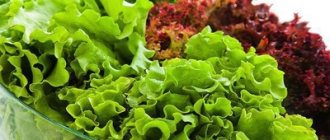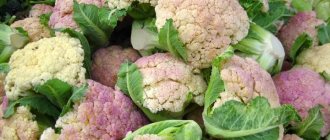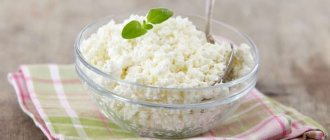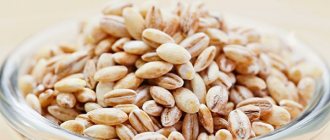About the benefits and indispensability
Treatment of gastritis involves adjusting the patient's diet. A person who has been diagnosed with gastritis must avoid eating sour, salty and fatty foods; It is also necessary to exclude carbonated and alcoholic drinks, sweets, some fruits, and so on from the diet. But is it possible to eat nuts with gastritis? What are the benefits of peanuts, cashews and walnuts? And how should you eat nuts if you have gastritis?
Any nuts are a healthy product and quite high in calories. The high content of Omega-3 fatty acids makes nuts an excellent preventative against atherosclerosis, heart and brain diseases. The rich vitamin and mineral composition determines the antioxidant properties of the product, thanks to which nuts are indispensable for the prevention of oncology.
Nuts are mental stimulants and improve the functioning of all organs and systems. For constipation and diarrhea, for chronic gastritis with normal and low acidity, nuts stimulate the activity of the stomach and intestines and promote healing of the inflamed mucous membrane. It is difficult to replace nuts in the diet with anything; there is no worthy alternative.
Nuts contain many beneficial substances that heal the body and strengthen the immune system. However, if you have gastritis, not all nuts can be eaten. The fact is that some nuts contain substances that can pose a certain danger for gastritis. The explanation for this is very simple - to digest some nuts, the stomach will need an additional amount of hydrochloric acid. If the person is healthy, then this additional acid will not cause any harm to the person; if a person has inflammation of the gastric mucosa, then additional hydrochloric acid can seriously harm the stomach.
Tips and tricks
Even if your gastritis does not cause you noticeable discomfort (abdominal pain, belching, weak stools), this does not mean that it will not lead to some complications in the future, for example, Barrett's esophagus (not cancer, but still also dangerous disease).
Therefore, in any case, you should adhere to certain tips that will help and make it easier to fight the disease.
- First of all, of course, you should stop drinking strong alcoholic drinks . Alcohol has an aggressive effect not only on the stomach, but also on the entire body as a whole. See acceptable drinks here.
- It is worth monitoring your diet throughout the day , it is advisable to eat each meal at the same time every day and not lean too much on food, it is better to eat more often, but in small portions.
On our website: Diet No. 1: a complete description and list of recommendations for patients with gastritis
Eating nuts
It would seem that nuts are an ideal food for gastritis. This is a natural product without chemicals or preservatives, rich in useful and nutritious substances. They help strengthen the body's defenses, stabilize the functioning of the cardiovascular system and myocardium.
However, such food also has a number of limitations:
- they can only be used in a state of remission;
- they must be crushed;
- the best time to eat is after the main meal, as a dessert;
- Only adult patients can eat them.
It is prohibited to eat nuts in the following cases:
- in the presence of individual intolerance, since there is a high risk of developing a severe allergic reaction;
- The consumption of nuts is strictly prohibited for patients with chronic gastric and duodenal ulcers;
- The product is not eaten if you have oncology, diabetes or obesity.
Only ripe fruits are eaten, without traces of rot or spoilage. The daily amount is agreed upon with the attending physician, based on the patient’s condition and individual characteristics.
It is important to remember that excessive consumption of nuts can cause serious harm to the stomach, since this food is difficult to digest and creates significant stress on the diseased organ. Before eating, they should be soaked for a couple of hours in water at room temperature so that the product becomes softer and does not injure the diseased organ.
Below is a list of the most popular varieties of nuts, as well as information on the advisability of their use for gastritis.
Use for illness
Nutritionists recommend that healthy people consume a handful of nuts per day. With gastritis, not only the amount of consumption is reduced, but the range of products is also limited. The following types of nuts are allowed:
- Walnuts – 20 grams;
- Cedar - 20 grams;
- Peanuts – up to 50 grams;
- Cashews – up to 5 grams.
- Pecans – up to 10 grams.
- Hazel (hazelnut) – up to 10 pieces per day.
- Coconut – up to 30 grams of fruit pulp.
- The following types of nuts are prohibited for gastritis:
- Manchurian. Neither the fruit itself nor medicinal tinctures from it can be used.
- African kola nut. Not recommended for gastritis due to the high content of caffeine and other natural stimulants that provoke increased secretion of gastric juice.
- Nutmeg. The fruit cannot be used for gastritis even as a spice.
- Brazilian. Even for healthy people, the consumption of this fruit is limited to 2 nuts per day. It is not advisable to use it if you have gastritis.
- Pistachios.
- Raw almonds due to the presence of hydrocyanic acid in the composition.
Benefits of nuts
Each type of nut has a beneficial effect on organs and systems. Thanks to vegetable oils, the production of hormones of the endocrine system is normalized, vitamins stimulate the immune system, minerals in free form and in the composition of inorganic salts normalize the transport of substances through the cell membrane.
Walnut
Of the minerals, walnuts are rich in phosphorus, calcium, iron, potassium, iodine and magnesium. Vitamins contained in the product: retinol (vitamin A), ascorbic acid (vitamin C), tocopherol (vitamin E), B vitamins. The nut promotes the production and formation of red blood cells, stabilizes the functioning of the liver and kidneys, relieves a person from disorders of the nervous and immune systems and provides an adequate immune response to external stimuli.
The health benefits of walnuts are:
- Walnuts contain exactly the right form of vitamin E (in the form of gamma-tocopherol instead of the widespread alpha-tocopherol) that normalizes the functioning of the heart muscle. Nuts are also good for preventing heart disease.
- Walnuts contain a large amount of antioxidants. These substances slow down aging and prevent the development of cancer.
- Walnuts are a good dietary product that can be used to quickly lose weight.
- Walnuts do not irritate the gastric mucosa, which promotes the healing of gastric ulcers.
- Nuts also normalize human mental health. Nuts reduce the symptoms of the following mental disorders - depression, drowsiness, fatigue, and so on.
One of the greats said: “It’s not only what you eat that matters. It's how you do it that matters." Even if your body reacts normally to nuts, you need to know the main rules for using them for gastritis.
In addition to a small dosage (no more than 60 grams per day), it is also necessary to prepare the product for use, making it as gentle as possible for a sore stomach. It's no secret that the walnut kernel has a fairly hard consistency. In this form, it is easy to damage the mucous membrane. That is why solid food for stomach ulcers and gastritis is strictly prohibited.
What to do? After all, nuts are so healthy and nutritious... There is a way out! You need to eat them in crushed form. For example, using a coffee grinder or blender. The product, which is consumed in the form of small crumbs, will no longer be too dangerous for the inflamed walls of the stomach. By the way, in this form, nuts are convenient to add to salads and other dishes.
Don't forget one more rule. You should also not eat walnuts on an empty stomach. They create additional stress on the pancreas and the entire digestive tract. Therefore, problems may get worse.
Thus, there is no definite answer whether you can eat walnuts in your case. Of course, their use is allowed. But only in crushed form, in small portions. Your doctor will give you exact recommendations.
Pine nut
Due to the large amount of carbohydrates and proteins in the amount of one hundred grams, a small pine nut can quench appetite, restore performance, and regulate metabolic processes. In combination with honey it has an anti-inflammatory effect. Thanks to essential oils, it destroys microorganisms. Pine nuts are superior in composition to other types in terms of the concentration of minerals and inorganic salts.
Pine nuts have many beneficial properties:
- Cedar seeds are incredibly useful. The protein content in them is about 44%, which is 2 times more than in white chicken meat. The balanced protein of plant origin in such a nut is so close to the protein compounds of human tissues that it can be absorbed by 99%.
- Pine nuts are rich in amino acids, polyunsaturated fatty acids, vitamins A, B, C, D, E, P and minerals (potassium, calcium, magnesium, phosphorus).
- The inclusion of pine nuts in the diet has a positive effect on the functioning of the heart and blood vessels, nervous system, and liver.
- The benefits of pine nuts contribute to their use not only for treatment, but also for the prevention of diseases of the digestive system, atherosclerosis, diabetes and anemia.
Modern medicine includes pine nuts in the production of a variety of pharmaceuticals prescribed for the treatment of disorders such as anemia (anemia), coronary heart disease, some allergies, weakened natural immunity, and so on.
Almond
The nut is highly recommended by endocrinologists and nephrologists; almond oil is effective for inflammatory and sclerotic kidney diseases, disorders of the production of sex hormones in men and women.
Hazelnut
Due to the high concentration of vitamin E, a natural antioxidant, it slows down the aging process of the skin. Mandatory in combination with dried fruits for heart and vascular diseases, enriched with potassium. Hazelnuts restore strength and fight constant fatigue.
Peanut
Particular attention is paid to the “groundnut”, as it is called in literary sources. The benefits of peanuts are comparable to those of other nuts, and the cost is much lower compared to others. It turns out that the warehouse of useful microelements is more accessible to a person with an average subsistence level.
The product is best consumed slightly fried; it acquires a pleasant taste and is freed from the surface shell, which is not absorbed in the gastrointestinal tract. Peanuts include a group of B vitamins and improve the transmission of nerve impulses, affecting attention and memory.
Let's list the beneficial properties of peanuts:
- The nut contains polyphenols, which are the strongest antioxidants. With regular use, the human body quickly copes with poisons and toxins that enter the body.
- Another important function of polyphenols is to strengthen blood vessels.
- Antioxidants are the body's best-known helpers in preventing cancer. It has been proven that regular consumption of peanuts reduces the risk of developing colorectal cancer by 20%.
- Peanuts have hemostatic properties, so they should be included in the diet of people who suffer from hemophilia and bleeding disorders.
- It is useful to consume peanuts as a medicine that reduces the concentration of cholesterol in the body. This prevents heart attacks and strokes.
- The monounsaturated fats found in peanuts help regulate blood sugar levels. This is especially true for people suffering from diabetes.
- The amino acids that make up peanuts help the immune system function and have a beneficial effect on the human psyche.
- Peanuts also contain magnesium, which normalizes blood pressure.
Cashew
Cashews have a delicate buttery taste. This nut is a leader in vitamin B content. Cashews also contain Omega-3 fatty acids, which is very rare for plant products. Whether it is possible to eat cashews with gastritis is a controversial issue. Some sources claim that the oil of this nut can heal ulcers, while others claim that this oil is a caustic substance that will irritate the gastric mucosa.
Cashews are not an essential product, so it is advisable to limit cashew consumption for gastritis; the optimal daily dose is no more than 5 g
Cashew nuts have the following beneficial properties:
- Cashews contain a large amount of fiber, so cashews can act as a means to prevent constipation. Also, the fiber contained in nuts improves intestinal motility.
- Vitamin PP contained in cashews prevents the development of pellagra.
- Cashews also contain vitamin E, which strengthens nails and hair.
Video on the topic:
Can I eat nuts?
Nuts contain many beneficial substances that heal the body and strengthen the immune system. However, if you have gastritis, not all nuts can be eaten. The fact is that some nuts contain substances that can pose a certain danger for gastritis. The explanation for this is very simple - to digest some nuts, the stomach will need an additional amount of hydrochloric acid. If the person is healthy, then this additional acid will not cause any harm to the person; if a person has inflammation of the gastric mucosa, then additional hydrochloric acid can seriously harm the stomach.
Doctors recommend eating nuts for gastritis as follows:
- Walnuts and pine nuts. For gastritis, doctors allow walnuts and pine nuts to be eaten no more than 20 g per day. These nuts are enriched with vitamins that improve the functioning of the immune system. These nuts are also useful in weakening the body's defenses. For gastritis, walnuts and pine nuts strengthen the gastric mucosa, which leads to recovery.
- Cashew nuts. Experts recommend consuming no more than 5 g of cashew nuts for gastritis. Medical research shows that cashew nuts contain both beneficial substances that promote wound healing in gastritis, and substances that, in high concentrations, can worsen gastritis. Therefore, doctors recommend consuming cashew nuts only in small portions so as not to provoke symptoms of gastritis.
- Almond. Almonds contain hydrocyanic acid, which can irritate the mucous membranes of the stomach, which can worsen gastritis. Therefore, doctors recommend completely abstaining from eating almonds if you have gastritis.
- Peanut. Peanuts for gastritis are allowed to be eaten by people who have normal stomach acidity, but peanuts are contraindicated for people with low or high acidity. Doctors recommend that people with normal acidity consume no more than 50 g of peanuts per day. Peanuts contain a large amount of healthy protein and vitamins; With the help of these natural substances, you can strengthen the gastric mucosa, which will lead to a reduction in the symptoms of gastritis.
Is it possible to eat nuts if you have gastritis?
There are a lot of varieties of nuts, they have different tastes, sizes and prices, but they have several features in common: a large amount of vitamins; nutritional value; calorie content; dense structure. Such characteristics make eating nuts undesirable for gastritis: they mechanically irritate the mucous membrane, and their digestion can increase the concentration of hydrochloric acid.
Regular consumption of walnuts prevents the formation of cholesterol, activates metabolism, removes toxins and radicals and stabilizes hormonal levels. The product normalizes the intestinal microflora and the amount of gastric juice, strengthens the mucous membrane in the stomach. Despite the benefits, walnuts for gastritis can be consumed in moderation (up to 50 grams) due to their fat content and dense consistency.
Another popular type of nut is peanuts. Peanut's ability to resist cancer cells makes it a desirable product for erosive inflammation of the mucous membrane. Pine nuts eliminate nausea, burning in the stomach and reduce inflammation of the mucous membrane. If you eat this product regularly, you can get rid of digestive problems.
For gastritis with high acidity, cedar kernels are very useful even during an exacerbation. Just 1-2 tbsp. spoons quickly relieve pain and unpleasant symptoms. Nuts are tasty and healthy; with the permission of your doctor, if you have gastritis, you can eat several kernels of the highest quality per day, without salt or peel, in crushed form.
Contraindications
First of all, it is worth mentioning the individual hypersensitivity of a person. If there is a predisposition to the development of bronchial asthma or angioedema, consuming even a small amount of almonds or hazelnuts may become a trigger for the development of an allergic reaction.
Contraindications are present for people with chronic gastric and duodenal ulcers. Selected nuts, as mentioned above, contain the highest level of acid concentration, becoming a direct destructive factor for the damaged wall.
People with concomitant diseases such as obesity and diabetes should not eat several types of nuts. The product contains an abundance of simple and complex carbohydrates. For a person with an average build, this is useful, but with increased weight it will become an additional source of kilocalories. This category includes patients with hypercholesterolemia; for them there is an exception - you can eat peanuts, which contain practically no cholesterol.
Eating nuts for cancer is dangerous. There is a risk of tumor growth due to protein elements. For this reason, it is contraindicated in patients with chronic renal failure.
Walnuts are useful for gastritis, but are prohibited for various skin diseases, for example, eczema, dermatitis, psoriasis.
Why can't you eat a lot of nuts if you have gastritis? The reason is simple: they are a difficult product to digest, but completely abandoning them is an unwise decision. Nuts must be excluded completely in two cases:
- during the period of exacerbation of the disease;
- if the pathology is accompanied by a significant increase in acidity levels.
A small amount of nuts – within the limits recommended by doctors – will not cause harm. But a significant excess can provoke another exacerbation. It is necessary to include the product in the diet only after consultation with your doctor, since the type of gastritis and the level of acidity of gastric juice must be taken into account.
Methods of consumption
For gastritis, nuts can be used to prepare medicinal tinctures. There are several recipes based on this product for the chronic form of the disease:
- Walnut shells (30 g) are mixed with propolis (30 ml), cinquefoil root (30 g), celandine (30 g). Propolis, cinquefoil root and shells are poured with 150 ml of ethyl alcohol and kept in a closed container for 1 week. Shake the mixture periodically without opening the lid of the container. Place the celandine in a separate container, add 150 ml of vodka and leave for a week. Place linden honey and aloe juice (150 ml of each ingredient) in another container and leave for 5-7 days. The resulting liquid after infusion is placed in one container and mixed thoroughly. The medicine is taken on an “empty” stomach, with 30 g of butter. The drug is taken 4 times a year, for a course of 2 months.
- Chopped walnuts (150 g) are poured with 70% ethyl alcohol (200 ml) and left for 7 days in a dark place. The product is filtered and taken 1 tsp. before eating. The mixture is recommended for patients suffering from low acid gastritis. A mixture of nuts and alcohol increases the level of hydrochloric acid in the stomach.
- Peanut skins (3 tablespoons) are poured with ethyl alcohol 70% and left for 14 days. After this, take 10 drops of the product with pasteurized milk. The tincture is suitable for the treatment of gastritis with high acidity in the chronic stage.
Video on the topic:
Treatment with nuts
In some cases, nuts become a medicine for gastritis in combination with certain ingredients. For hundreds of years, grandmothers have been passing on the secrets of all kinds of traditional medicine recipes. With gastritis, it is possible to use the suggested tips, tested by hundreds of people, without fear.
Recipe No. 1
- Pine nut shells - thirty grams;
- Propolis – thirty grams;
- Potentilla root (galangal) – thirty grams;
- Ethyl alcohol 70% – one hundred and fifty grams.
- Celandine - thirty grams;
- Vodka – one hundred and fifty grams;
- Aloe juice – one hundred and fifty grams;
- Linden honey - one hundred and fifty grams.
Place the shells, propolis, galangal in a glass container, pour alcohol. Infuse for three or four weeks, shaking occasionally, but not stirring; the container should not be opened.
Place celandine in another glass bottle or jar and fill with vodka. Infuse for seven days.
Mix aloe juice and linden honey. Mix the resulting liquids. The resulting product should last five to seven days. The result is a medicine in a volume of six hundred grams. It contains a high level of concentration of essential oils and vitamins that are useful for patients with gastritis of any type.
Use in the morning, on an empty stomach, a tablespoon, with a small piece of butter. Treatment continues until the tincture runs out. Repeat treatment every two months, four times a year.
Recipe No. 2
- Walnuts – one hundred and fifty grams;
- Ethyl alcohol 70% – two hundred grams.
Peel the walnuts, place in a glass jar, cover with alcohol and leave for a week in a warm, dry room without access to light. Strain the resulting liquid. Take a teaspoon of tincture per day. Recommended for patients with hypoacid gastritis, it stimulates the production of hydrochloric acid.
Is it possible to eat nuts if you have gastritis with high acidity?
It all depends on the type of kernels and their quality. In case of pathology, preference is given to walnuts, pine nuts and peanuts, unless a person has individual intolerance or contraindications to these products. A person suffering from gastritis must know the basic rules for consuming kernels so as not to harm their health - do not exceed the established daily doses, do not fry nuts before consumption, do not eat the product on an “empty” stomach.
If you have high acidity, you should include only fresh nuts in your diet and in no case should you eat them fried or, even worse, moldy.
In case of high acidity, it is best to replace the fruits themselves with oil from them. For example, cedar oil, almond oil, and walnut oil have very beneficial properties.
It is much better absorbed by an inflamed stomach and will have a positive effect on the entire body.
Rules to follow when purchasing
Expert opinion
Irina Vasilievna
Practicing gastroenterologist
If you buy nuts in shell, you should definitely inspect it carefully. Under no circumstances should there be any chips, cracks, or even holes on it. The shell should have a uniform color without any spots.
The most important sign of a good and fresh fruit is its weight: based on the size of the nut, it should be quite heavy.
Purchasing shelled nuts should be avoided , since it is unknown how long and where they were stored. But if you don’t have others, then first of all you should look at their cores. They should be meaty, slightly plump and firm.
On our website: Rosehip for gastritis











